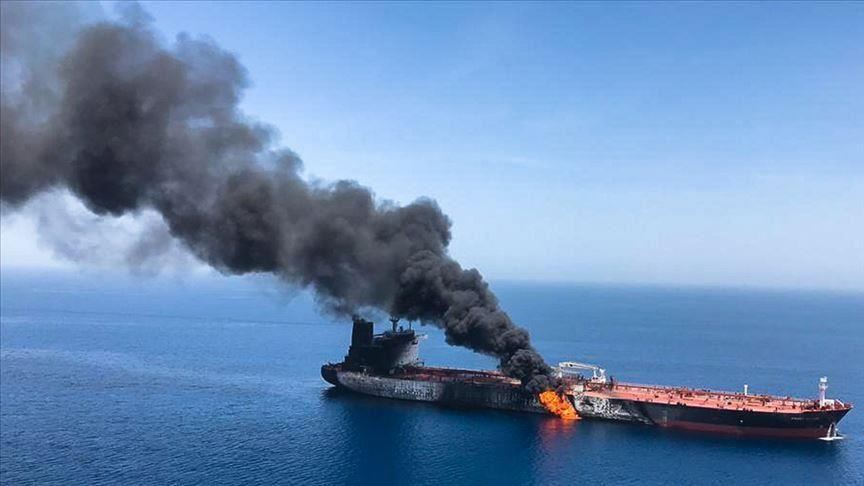Oil tanker attacks 'leverage' for sanctioned Iran
Iran's oil exports have been drastically affected by US sanctions

ANKARA
Recent oil tanker attacks in the Gulf could be “leverage” for Iran against sanctions imposed by the U.S. administration on the country’s oil exports, a political expert said.
Iran's oil exports have been drastically affected by the sanctions through which the White House seeks to bring Tehran's petroleum revenues to zero.
"US sanctions have caused to slash Iran’s oil exports from around 2.8 million barrels per day [bpd] a year ago to around 400,000 bpd," political analyst and researcher Ali Bakeer told Anadolu Agency.
Iranian officials have refrained from holding talks with the U.S. although President Donald Trump "is tightening the screws around the regime in Tehran," Bakeer said.
He said that Iranian officials seek "either to convince Washington to drop its sanctions or to de-escalate the campaign against Tehran."
Although the U.S. barred its allies from trade with Iran, Tehran vowed to continue exporting its oil and even threatened to close the Strait of Hormuz if it is prevented from using the strategic Persian Gulf waterway.
On Thursday, two oil tankers were attacked in the Gulf of Oman near the Strait of Hormuz while setting off from oil-rich Arab Gulf countries en route to the far east.
The Strait of Hormuz is a vital waterway, with roughly one-third of the world's liquefied natural gas and a fifth of its oil consumption transiting through it each day.
The U.S. officially blamed Iran for Thursday’s attacks on the two Japan-operated oil tankers, an accusation vehemently denied by Tehran.
Thursday’s attacks came a few weeks after four vessels, including two Saudi oil tankers, were sabotaged off the coast of the United Arab Emirates (UAE).
Last month, U.S. National Security Adviser John Bolton, during a visit to the UAE, accused Iran of being behind attacks on oil tankers off the UAE coast.
Speaking in Abu Dhabi, the UAE capital, Bolton said the attacks took place "by naval mines almost certainly from Iran."
"These increasing attacks on oil tankers and facilities are meant to serve as leverage for Iran while the Iranian officials can still deny any responsibility,” Bakeer said.
Such attacks could be in the interest of Tehran as they "can increase the prices of oil," he believes.
"This is crucially important for Tehran in order to compensate the acute drop in its oil exports," Bakeer said. "The latest attack raised the prices by around 4.5 percent instantly."
Bakeer suggested that the attacks could also "serve as a warning against the continuing sanctions", citing that senior Iranian political and military officials had previously "warned that if their country was unable to export its oil, then they will make sure others’ oil shall not pass through Hormuz."
Turmoil in oil transfer could harm the interest of the U.S. in the region and "can also serve as a warning against the continuing sanction on Iran's oil," he said.
Tensions have been rising between the U.S. and Iran since last year, when the U.S. unilaterally withdrew from a nuclear pact between the Islamic republic and the five permanent members of the UN Security Council plus Germany.
"By pushing the limits of the situation and playing on the edge of abyss, Iran hopes that such operations might force the U.S. to de-escalate," the political expert said.
The U.S. "fears that the continued escalation can carry high stakes for itself, its allies and the security of the Gulf and the oil industry of course," Bakeer added.








